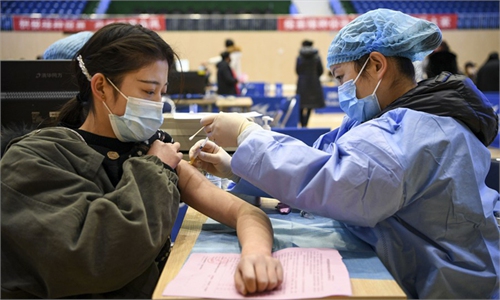COVID-19 increases blood clot risk for up to six months

Hong Kong residents queue at a mobile COVID-19 testing station. Photo: VCG
People who have had COVID-19 have an increased risk of developing serious blood clots for up to six months after getting infected, even in mild cases, a study said Thursday.Previous research has indicated that COVID-19 raises the risk of blood clots, but the new study in the BMJ medical journal shows how long the threat can linger.
To find out, researchers compared data from more than a million people in Sweden's national registries who contracted COVID-19 from February 2020 to May 2021, with a control group of over 4 million who did not test positive.
They found that those with COVID-19 had a higher risk of pulmonary embolism, a blood clot that blocks arteries in lungs, up to six months after infection.
There was also an increased danger of deep vein thrombosis - a blood clot normally in legs - up to three months after contracting COVID-19.
After adjusting for a range of factors, they found a 33-fold increase in the risk of pulmonary embolism for those who had COVID-19, as well as a five-fold rise for deep vein thrombosis.
People with pre-existing conditions who suffered severe symptoms from COVID-19 were more at risk, the study found.
But even people who had mild cases that did not need hospitalization had a higher danger of pulmonary embolism and deep vein thrombosis.
The chance of clotting was higher during the first wave of the pandemic than later stages, which the researchers said was due to vaccine coverage and better treatments as time went on. The researchers said their findings had "major policy implications," calling for more treatment to prevent blood clots from developing, particularly in high risk cases.
AFP



